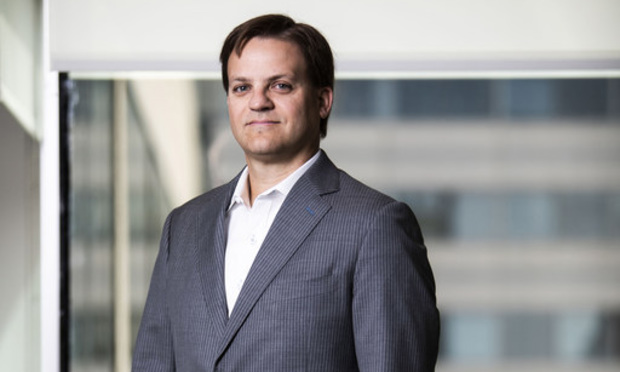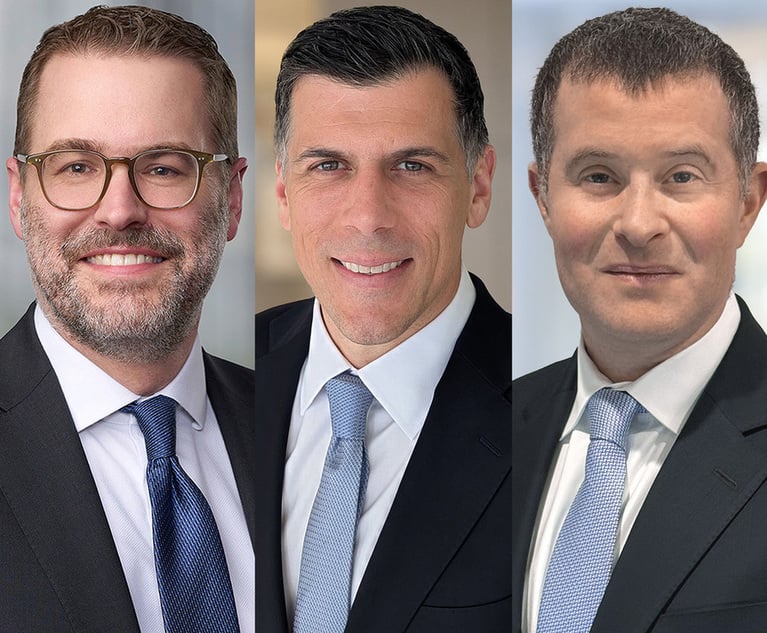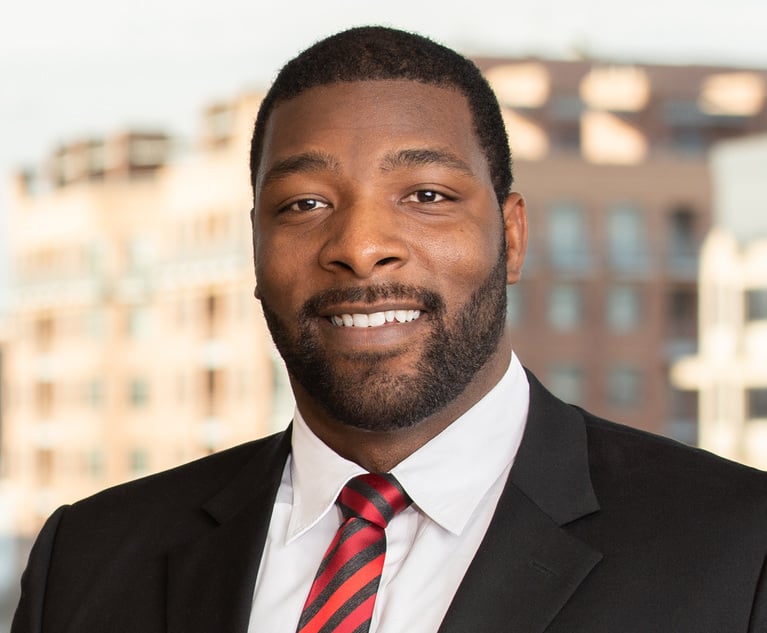Morrison & Foerster
From securing elections to putting the government to its burden in criminal cases to protecting the rights of the disabled, every case is vitally important to the clients and to me.
April 30, 2019 at 11:59 PM
3 minute read
 David Cross, with Morrison & Foerster in Washington, D.C. April 12, 2019.
David Cross, with Morrison & Foerster in Washington, D.C. April 12, 2019.
Describe your firm's philosophy on pro bono service.
Morrison & Foerster has a proud tradition of pro bono leadership. We have established a formal expectation that all MoFo lawyers make meaningful pro bono contributions throughout their careers. Our guiding principle is to accord equal dignity and equal rigor to our pro bono endeavors. We encourage lawyers to find their passion in pro bono, and we dedicate extraordinary resources to helping them contribute their best through pro bono work.
Of the big cases your firm recently worked on, one included a win for Georgia voting rights. Tell us more about that case and how you reached the outcome.
We employed a three-part strategy: (i) we narrowed our case to moot defendants' immunity defenses; (ii) we engaged the country's leading election integrity expert to hack a Georgia voting machine and alter the results in the courtroom; and (iii) we induced the defendants to put key election officials on the stand to defend the election system, knowing cross-examination would elicit many security deficiencies in that system. Consequently, the court rejected the immunity defenses (which the 11th Circuit affirmed) and found that defendants had taken a "head in the sand" approach to election security, creating powerful precedent for election security challenges. With the time crunch of midterms behind us, we're now well positioned to win preliminary and permanent injunctions this year.
What was the most satisfying aspect of that key case?
Nothing is more fundamental to our republic than secure elections reflecting the will of the voters. This institution is under attack from forces within and without the country. The court's decision breathes new life into critical efforts across the U.S. to thwart those attacks by requiring secure, reliable voting systems, even when legislatures and executives do not. The court's decision validating our theory and concerns was incredibly satisfying and encouraging.
Discuss other key pro bono matters recently completed by the firm.
Highlights of our lawyers' achievements through their collective 78,000 hours of pro bono work in the last year include: Parents who care for foster children in Hawaii are receiving substantially increased stipends for their care. Before we filed suit in 2013, foster care stipends were unchanged for 25 years.
Individuals with mental disabilities or mental illness in Los Angeles—many of them homeless or close to it—no longer face structural barriers when applying for General Relief benefits. A Texas law that stigmatized women seeking abortion by requiring burial or cremation of fetal remains was enjoined.
Recipients of short-term housing subsidies in Washington, D.C., are protected by the city's ban on "source of income" discrimination.
Why does your pro bono work matter to you as a lawyer?
Our pro bono work provides an opportunity to help protect the rights of those who cannot afford to do so themselves. It's an important reminder that justice isn't truly available to all because it often comes at considerable cost. From securing elections to putting the government to its burden in criminal cases to protecting the rights of the disabled, every case is vitally important to the clients and to me.
Responses submitted by Jennifer Brown, senior pro bono counsel at Morrison & Foerster, and David Cross, partner in the firm's global antitrust practice.
This content has been archived. It is available through our partners, LexisNexis® and Bloomberg Law.
To view this content, please continue to their sites.
Not a Lexis Subscriber?
Subscribe Now
Not a Bloomberg Law Subscriber?
Subscribe Now
NOT FOR REPRINT
© 2025 ALM Global, LLC, All Rights Reserved. Request academic re-use from www.copyright.com. All other uses, submit a request to [email protected]. For more information visit Asset & Logo Licensing.
You Might Like
View All
Wilmer, White & Case, Crowell Among the Latest to Add DC Lateral Partners
4 minute read
Lawyers Across Political Spectrum Launch Public Interest Team to Litigate Against Antisemitism
4 minute read

Government Contracting Clients Look to Firms to Stay on Top of Trump Policy Changes
4 minute readTrending Stories
- 1States Accuse Trump of Thwarting Court's Funding Restoration Order
- 2Microsoft Becomes Latest Tech Company to Face Claims of Stealing Marketing Commissions From Influencers
- 3Coral Gables Attorney Busted for Stalking Lawyer
- 4Trump's DOJ Delays Releasing Jan. 6 FBI Agents List Under Consent Order
- 5Securities Report Says That 2024 Settlements Passed a Total of $5.2B
Who Got The Work
J. Brugh Lower of Gibbons has entered an appearance for industrial equipment supplier Devco Corporation in a pending trademark infringement lawsuit. The suit, accusing the defendant of selling knock-off Graco products, was filed Dec. 18 in New Jersey District Court by Rivkin Radler on behalf of Graco Inc. and Graco Minnesota. The case, assigned to U.S. District Judge Zahid N. Quraishi, is 3:24-cv-11294, Graco Inc. et al v. Devco Corporation.
Who Got The Work
Rebecca Maller-Stein and Kent A. Yalowitz of Arnold & Porter Kaye Scholer have entered their appearances for Hanaco Venture Capital and its executives, Lior Prosor and David Frankel, in a pending securities lawsuit. The action, filed on Dec. 24 in New York Southern District Court by Zell, Aron & Co. on behalf of Goldeneye Advisors, accuses the defendants of negligently and fraudulently managing the plaintiff's $1 million investment. The case, assigned to U.S. District Judge Vernon S. Broderick, is 1:24-cv-09918, Goldeneye Advisors, LLC v. Hanaco Venture Capital, Ltd. et al.
Who Got The Work
Attorneys from A&O Shearman has stepped in as defense counsel for Toronto-Dominion Bank and other defendants in a pending securities class action. The suit, filed Dec. 11 in New York Southern District Court by Bleichmar Fonti & Auld, accuses the defendants of concealing the bank's 'pervasive' deficiencies in regards to its compliance with the Bank Secrecy Act and the quality of its anti-money laundering controls. The case, assigned to U.S. District Judge Arun Subramanian, is 1:24-cv-09445, Gonzalez v. The Toronto-Dominion Bank et al.
Who Got The Work
Crown Castle International, a Pennsylvania company providing shared communications infrastructure, has turned to Luke D. Wolf of Gordon Rees Scully Mansukhani to fend off a pending breach-of-contract lawsuit. The court action, filed Nov. 25 in Michigan Eastern District Court by Hooper Hathaway PC on behalf of The Town Residences LLC, accuses Crown Castle of failing to transfer approximately $30,000 in utility payments from T-Mobile in breach of a roof-top lease and assignment agreement. The case, assigned to U.S. District Judge Susan K. Declercq, is 2:24-cv-13131, The Town Residences LLC v. T-Mobile US, Inc. et al.
Who Got The Work
Wilfred P. Coronato and Daniel M. Schwartz of McCarter & English have stepped in as defense counsel to Electrolux Home Products Inc. in a pending product liability lawsuit. The court action, filed Nov. 26 in New York Eastern District Court by Poulos Lopiccolo PC and Nagel Rice LLP on behalf of David Stern, alleges that the defendant's refrigerators’ drawers and shelving repeatedly break and fall apart within months after purchase. The case, assigned to U.S. District Judge Joan M. Azrack, is 2:24-cv-08204, Stern v. Electrolux Home Products, Inc.
Featured Firms
Law Offices of Gary Martin Hays & Associates, P.C.
(470) 294-1674
Law Offices of Mark E. Salomone
(857) 444-6468
Smith & Hassler
(713) 739-1250








